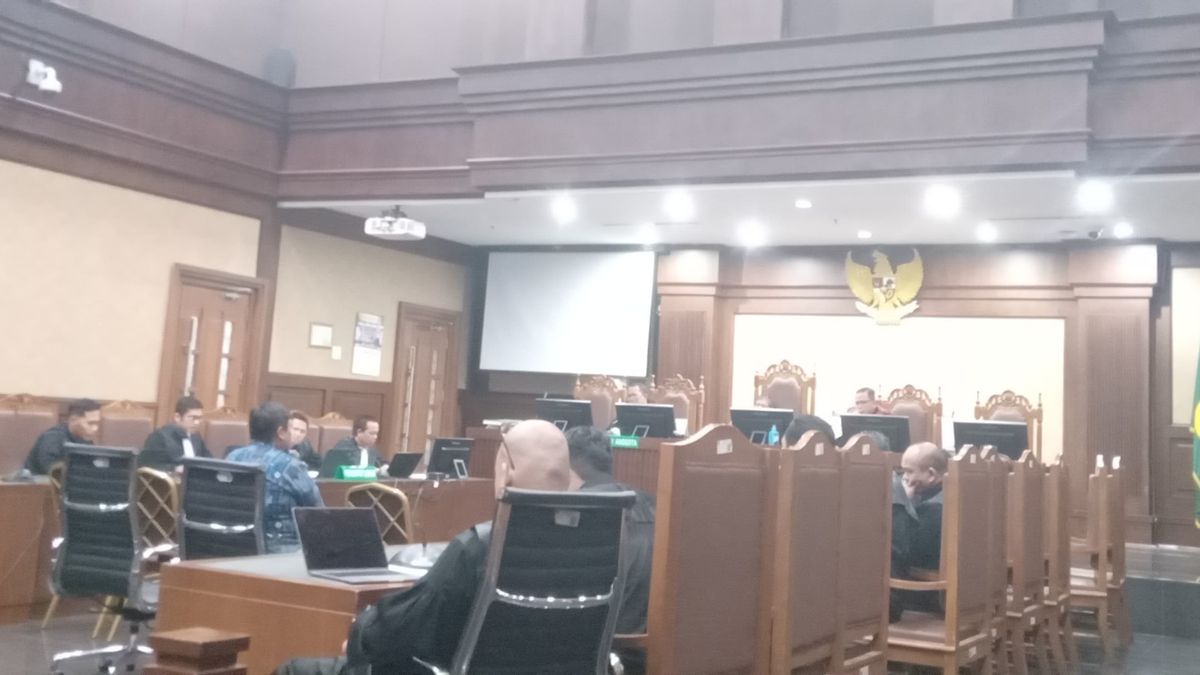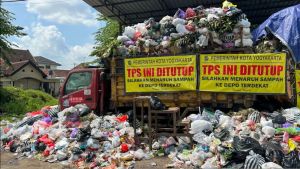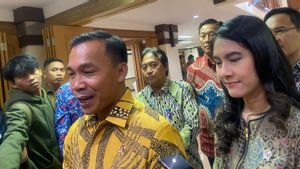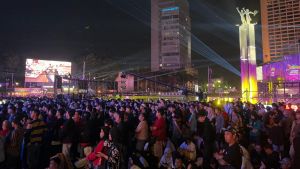JAKARTA The Central Jakarta Corruption Court (Tipikor) has again held a follow-up hearing on the alleged corruption of the Tin Commerce System with the defendant, high-ranking CV Venus Inti Perkasa (VIP) Thamron alias Aon Cs, Thursday, November 21.
During the trial, University of Indonesia State Financial Law Expert, Dr. Dian Puji Simatupang, SH, MH and Pancasila University State Administration Law Expert, Dr. Rocky Marbun, SH, MH agreed that there was a mistake in the legality and principle in the Tin Corruption Case with a loss of Rp. 300 trillion.
Dian explained that the basic principles of the state only accept something legal according to the rules, whether in the form of PNBP, taxes, or fees that have gone through official procedures, recorded in DIPA, and included in the APBN.
"If it is considered illegal, then there must be evidence and legal mechanisms to return it, including the revocation of the state budget. And all export activities from PT Timah must also be declared invalid because they come from illegal activities," said Dr. Dian Puji Simatupang, SH, MH when giving a statement at the Corruption Court in Central Jakarta.
Dian stated that in cases of illegal mining, even though there is income to the state, the legality status is unclear.
"If proven illegal, the state has the potential to face legal consequences, such as refunds, fines, or interest in accordance with Article 3 Paragraph 7 of the State Finance Law. Therefore, the assessment of state losses must be carried out carefully and based on real data," he added.
SEE ALSO:
Not only that, Dian said, PT Timah is a subsidiary of a state-owned company and not a state-owned company, so it has nothing to do with state losses. Moreover, it is BPK, not BPKP, that has the right to determine state losses.
It is said that debate will not occur if all parties agree that the authority to inspect and assess state losses is only owned by the BPK.
"I have traced, and the only clear legal basis is Article 10 paragraph 1 of the BPK Law, which states that BPK has the authority to assess state losses. I only adhere to the rules, Your Majesty. If there is only one law that states that BPKP has the authority to assess and calculate state losses in this context, I will immediately agree and stop arguing," he continued.
He said, so far, the authority of BPKP is only regulated in Article 20 of the Government Administration Law, namely to prevent state losses through administration, not to calculate state losses.
"This is also not regulated in PP 60 of 2008. So, I am waiting for concrete evidence stating that BPKP has this authority," he concluded.
Meanwhile, the expert in the Law on State Administration and State Administration, Dr. Rocky Marbun, SH, MH stated that it was not appropriate to apply criminal articles, especially the corruption article in this tin trading case, because the state would actually suffer losses.
Referring to the subversion of administrative law, the concept of mastery and the concept of ownership are very different. So that the defendant should not be subject to criminal sanctions but administrative sanctions," said the Pancasila University State Administration and Constitutional Law expert.
It is said, with the administration of administrative sanctions, the state will not be harmed given the fines imposed on the defendants.
"Besides, mining and environmental crimes cannot be included in the realm of corruption, because based on Article 14 of the Corruption Act, violating the Mining Law cannot be categorized as a criminal act of corruption," he explained.
Rocky stated that when there was an agreement between a subsidiary of a state-owned company and a private party in written form, the agreement was valid and the agreement was at the same level as the law for parties and the state could not interfere in the agreement.
"Moreover, in the Jurisprudence of Makamah Agung Number 4 of 2018 it was stated that the dispute that arose due to violation of the agreement was a civil domain, unless it was based on bad faith. Not only that, PT Timah itself is not a state-owned company, but a subsidiary of BUMN which was confirmed by three decisions related to the status of PT Timah. First, the Decision of the Pangkal Pinang High Court, Second, the Decision of the Bangka Belitung High Court and finally the Constitutional Makamah decision, all of which stated that PT Timah was not a state-owned company, "said the dropout of the Jayabaya University Law Science Doctoral Program.
In addition to the two experts above, the Defendant's Legal Advisor also presented a Business and Trade Legal Expert from Pelita Harapan University, Dr. Jonker Sihombing, SH, SE, MH, who gave his opinion regarding the lease agreement between a subsidiary of a state-owned company as a holder and a private company which is a legal civil relationship.
"The agreement was made legally, applicable as a law for those who made it. This means that if both parties agree with the determination of the rental price, whatever the price, what's wrong?" he said.
In addition, Dr. Jonker alluded to the legal responsibility of Pesero Komanditer in the Commanditary Alliance (CV).
"Yang menambahkan modal pesero passive, Pesero Komanditer hanya memasukkan uang/modal, tidak boleh mengurus perusahaan dalam bentuk apapun. Pesero Komanditer tidak bertanggung jawab dan tidak terlibat bertanggung jawab. Jika dia turut mengurus secara legal, maka dia memiliki tanggung jawab perdata, ikut tanggung bareng," jelasnya.
Dr. Jonker also emphasized that in Civil Law and Trade Law it did not take the term "beneficial ownership" into account, all there was was a besitter.
The English, Chinese, Japanese, Arabic, and French versions are automatically generated by the AI. So there may still be inaccuracies in translating, please always see Indonesian as our main language. (system supported by DigitalSiber.id)












